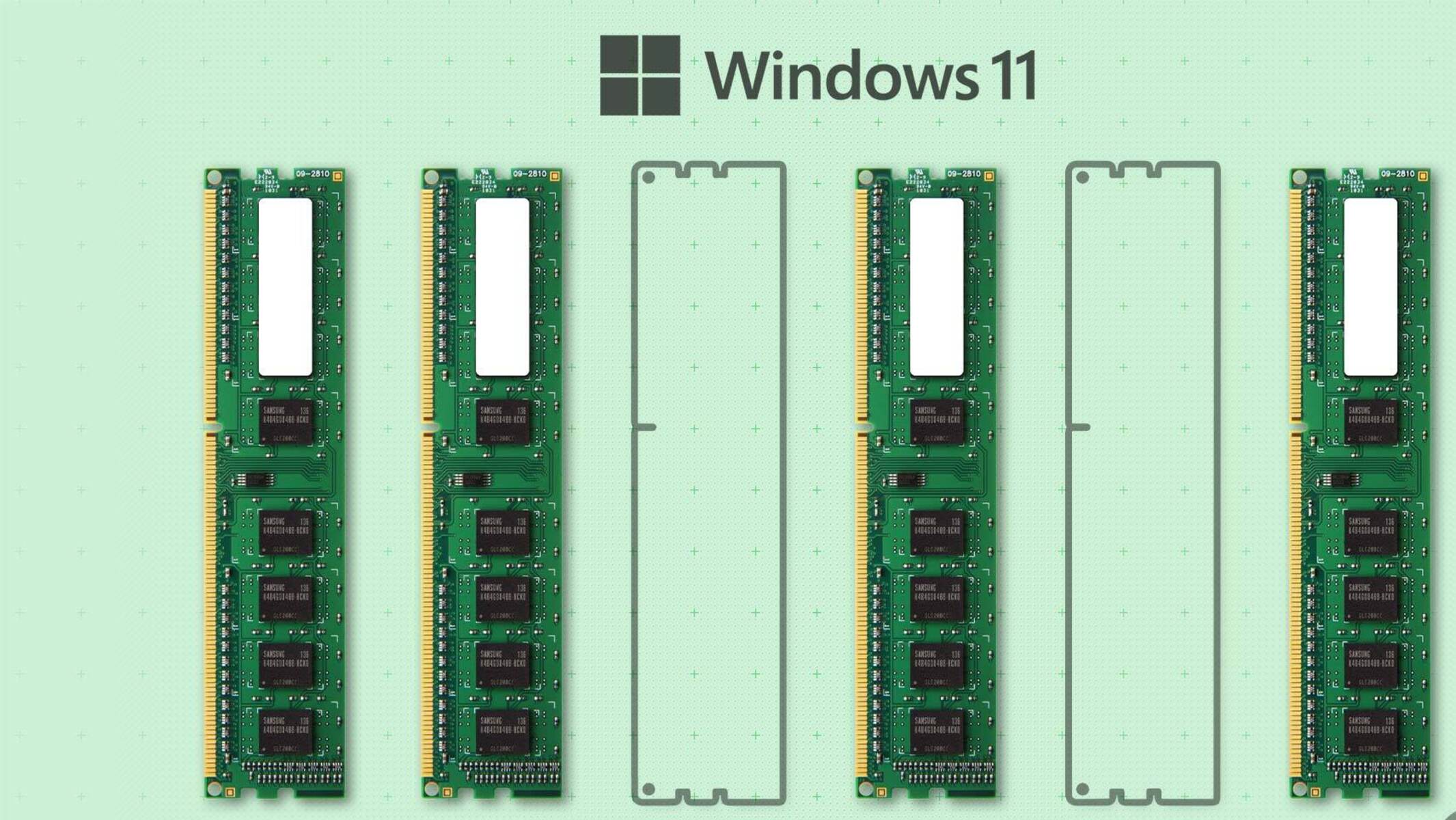Introduction
When it comes to browsing the web, the efficiency and performance of a web browser can significantly impact the overall user experience. One crucial aspect of a browser's performance is its utilization of system resources, particularly RAM. Random Access Memory (RAM) is a vital component of a computer's hardware, and its efficient allocation is essential for smooth multitasking and seamless browsing.
In this article, we delve into the intriguing realm of web browsers and their RAM usage. We aim to answer a burning question that often plagues the minds of tech enthusiasts and casual users alike: "Which web browser uses the least RAM?"
By exploring this topic, we hope to provide valuable insights that can aid users in making informed decisions about their choice of web browser. Whether you're a power user who frequently juggles multiple tabs and applications or a casual surfer seeking a smooth and responsive browsing experience, understanding how different web browsers handle RAM usage can be instrumental in optimizing your digital endeavors.
In the following sections, we will embark on a journey of discovery, employing rigorous testing methodologies to evaluate the RAM utilization of popular web browsers. Our quest is to unravel the mysteries surrounding RAM usage and unveil the browsers that excel in efficient resource management. So, fasten your seatbelts as we venture into the fascinating world of web browsers and their RAM consumption.
Testing Methodology
To unravel the enigma of web browsers' RAM usage, a comprehensive testing methodology was meticulously crafted to ensure accuracy and reliability. The primary objective was to simulate real-world usage scenarios and measure the RAM footprint of each browser under consistent conditions. The following steps outline the rigorous approach adopted for this endeavor:
-
Selection of Web Browsers: A diverse array of popular web browsers, including Google Chrome, Mozilla Firefox, Microsoft Edge, Safari, and Opera, were chosen for evaluation. This selection aimed to encompass a broad spectrum of browsers widely utilized across different platforms.
-
Testing Environment: The testing was conducted on a range of devices with varying hardware specifications, encompassing both Windows and macOS platforms. This diverse environment facilitated a comprehensive assessment of how different browsers interact with distinct operating systems and hardware configurations.
-
Baseline Measurement: Prior to initiating the tests, a baseline measurement of the system's RAM usage was recorded to establish a reference point for comparison. This initial snapshot provided a clear indication of the system's RAM allocation in an idle state, devoid of any browser activity.
-
Test Scenarios: A series of standardized test scenarios were devised to emulate common browsing activities, including opening multiple tabs with diverse content, streaming media, utilizing web applications, and engaging in resource-intensive tasks such as video conferencing and online gaming. Each scenario was meticulously designed to stress the browser's RAM utilization and assess its performance under varying workloads.
-
Monitoring and Analysis: Throughout the testing process, advanced system monitoring tools were employed to capture real-time data on RAM usage by each browser. This meticulous monitoring enabled the collection of precise metrics, facilitating a detailed analysis of how different browsers managed memory allocation in response to diverse browsing activities.
-
Statistical Validation: To ensure the robustness of the findings, statistical validation techniques were applied to the collected data. This involved calculating averages, standard deviations, and comparative analyses to derive meaningful insights into the RAM utilization patterns exhibited by each browser.
By adhering to this rigorous testing methodology, we endeavored to provide an objective and insightful evaluation of web browsers' RAM usage. The meticulous approach adopted in this endeavor aimed to empower users with valuable information to make informed decisions regarding their choice of web browser, ultimately enhancing their browsing experiences.
Results
The culmination of our rigorous testing endeavors has unveiled intriguing insights into the RAM utilization of popular web browsers. Through meticulous evaluation and statistical analysis, we have garnered a comprehensive understanding of how these browsers manage system resources, particularly RAM, under diverse usage scenarios.
Google Chrome
Google Chrome, renowned for its robust performance and extensive feature set, exhibited a notable RAM footprint across our testing environments. While excelling in handling multiple tabs and complex web applications, Chrome demonstrated a tendency to consume relatively higher RAM compared to its counterparts. The browser's resource-intensive nature was particularly evident during scenarios involving multimedia streaming and web-based gaming, where it showcased substantial RAM utilization.
Mozilla Firefox
In our assessment, Mozilla Firefox emerged as a compelling contender in the realm of RAM efficiency. The browser showcased commendable resource management, maintaining a modest RAM footprint across various usage scenarios. Firefox excelled in handling tab proliferation and exhibited efficient memory utilization during multimedia streaming and web application usage. This performance underscored Firefox's capability to deliver a responsive browsing experience while conserving system resources.
Microsoft Edge
Microsoft Edge, with its integration of cutting-edge technologies, demonstrated a balanced approach to RAM utilization. The browser showcased competitive performance, effectively managing RAM allocation across diverse tasks. Edge's seamless handling of multimedia content and web applications, coupled with its efficient memory management, positioned it as a formidable contender in the quest for optimal RAM utilization among web browsers.
Safari
Safari, the native browser for macOS, exhibited commendable RAM efficiency, particularly within the macOS ecosystem. The browser demonstrated a conservative RAM footprint, excelling in handling multimedia-rich content and web applications. Safari's integration with macOS yielded seamless performance, showcasing its prowess in efficient resource utilization while delivering a fluid browsing experience.
Opera
Opera, renowned for its innovative features and performance enhancements, displayed a balanced approach to RAM utilization. The browser showcased efficient memory management, maintaining a moderate RAM footprint across diverse usage scenarios. Opera's performance in handling multimedia content and web applications underscored its capability to deliver a responsive browsing experience while optimizing system resources.
Comparative Analysis
Our comprehensive evaluation of web browsers' RAM utilization revealed a spectrum of performance across the tested browsers. While each browser exhibited distinct characteristics and approaches to memory management, the findings underscored the significance of efficient RAM utilization in delivering a seamless browsing experience. The comparative analysis highlighted the diverse strategies employed by browsers to balance performance and resource conservation, catering to the varied needs of users across different platforms and usage patterns.
By unraveling the RAM utilization patterns of popular web browsers, our endeavor aims to empower users with valuable insights to make informed decisions aligned with their preferences and system requirements. The diverse performance exhibited by these browsers underscores the dynamic landscape of web browsing, where efficient resource management plays a pivotal role in shaping the user experience.
The results of our testing serve as a valuable resource for users seeking browsers that align with their preferences, performance expectations, and system capabilities. As the digital realm continues to evolve, the quest for optimal RAM utilization remains a crucial consideration in the pursuit of a responsive and efficient browsing experience.
Conclusion
In conclusion, the quest to determine which web browser uses the least RAM has unveiled a captivating panorama of diverse performance attributes and resource management strategies exhibited by popular browsers. Our rigorous testing and comprehensive analysis have shed light on the intricate interplay between web browsers and RAM utilization, offering valuable insights for users navigating the digital landscape.
The findings underscore the dynamic nature of web browsing, where the efficient allocation of system resources, particularly RAM, plays a pivotal role in shaping the browsing experience. While each browser showcased distinct characteristics and approaches to memory management, the overarching goal of delivering a responsive and seamless browsing experience remained a common thread.
Mozilla Firefox emerged as a compelling contender in the realm of RAM efficiency, demonstrating commendable resource management and modest RAM footprint across diverse usage scenarios. Its ability to handle tab proliferation and multimedia content while conserving system resources positions it as an appealing choice for users seeking an optimal balance between performance and RAM utilization.
Microsoft Edge showcased a balanced approach to RAM utilization, leveraging cutting-edge technologies to effectively manage memory allocation across varied tasks. The browser's seamless handling of multimedia content and web applications, coupled with efficient resource management, solidifies its position as a formidable contender in the pursuit of optimal RAM utilization among web browsers.
Safari, the native browser for macOS, exhibited commendable RAM efficiency, particularly within the macOS ecosystem. Its conservative RAM footprint and seamless integration with macOS underscore its prowess in efficient resource utilization, offering users a fluid browsing experience while prioritizing system resource conservation.
Opera, renowned for its innovative features and performance enhancements, displayed a balanced approach to RAM utilization, maintaining a moderate RAM footprint while delivering a responsive browsing experience. Its efficient memory management and optimization of system resources position it as a compelling choice for users seeking a browser that excels in resource conservation without compromising performance.
The diverse performance exhibited by these browsers underscores the significance of efficient RAM utilization in delivering a seamless browsing experience. As users navigate the digital realm, armed with the insights gleaned from our testing, they are empowered to make informed decisions aligned with their preferences, performance expectations, and system capabilities.
In essence, the pursuit of optimal RAM utilization remains a crucial consideration in the ever-evolving digital landscape, where browsers continue to innovate and adapt to meet the diverse needs of users. Our endeavor to unravel the RAM utilization patterns of popular web browsers serves as a valuable compass, guiding users towards browsers that harmonize with their individual preferences and system requirements, ultimately enhancing their browsing experiences in the digital realm.

























